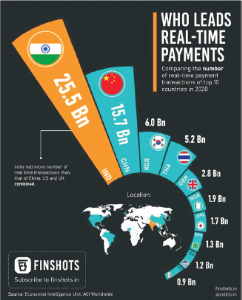Cracking the Growth Code: Key Insights into Scaling Challenges for Nano Enterprises
Running a successful nano enterprise requires a comprehensive understanding of business management, access to financial resources, and guidance in navigating complex regulatory landscapes.
Total Views | 121
-Dr. Anand Deshpande

Lower-income, self-employed individuals in rural or semi-rural areas often receive support from self-help groups (SHG) and microfinance networks (MFI), while banks and the financial system focus on the upper segment of the micro enterprise sector under the MSME label. However, the nano entrepreneurs receive less attention in policies, as they are perceived as urban, centrally located, and relatively non-poor, making them appear less vulnerable. It is therefore essential to highlight their struggles and provide them with the necessary resources to unlock their full potential. This approach will ensure that they can make positive contributions to economic growth, employment, and overall development.
The literature on entrepreneurship often overlooks the heterogeneity within the micro enterprise sector. The middle segment of micro enterprises in the MSME sector, which faces challenges in sustainability and growth, is particularly neglected. To address this gap, the deAsra Centre of Excellence in Nano Entrepreneurship at Centre for Excellence in Entrepreneurship & Development (CEED), Gokhale Institute conducted a survey in Pune, Maharashtra. The survey aimed to highlight the struggles and challenges faced by service sector nano businesses with annual turnovers ranging from Rs 10 lakh to 1 crore.
The term "nano entrepreneur" has different interpretations in various contexts. In this study, various existing definitions of nano enterprises have been extracted and applied them to the current MSME classification criteria based on annual turnover and have been defined as a distinct segment within MSMEs, with annual turnovers of less than INR 1 crore, characterized by their hyperlocal roots and focus. The survey covers registered and unregistered nano enterprises, including grocery shops, boutiques, tutors, catering and food stalls, bakeries, salons, pharmacies, auto repair shops, retail outlets, trading outlets, and small restaurants. The data is based on in-depth interviews with over 500 randomly selected nano entrepreneurs.
The survey findings indicate that nano-enterprises, despite being located in Tier 1 metropolitan cities like Pune, encounter significant obstacles hindering their growth and progress. Nano entrepreneurs have identified several key barriers to their business expansion, including lack of formalization and delayed payments affecting cash flow management, difficulty in hiring and retaining skilled labourers, compliance-related issues with complex regulations and a disconnect between implementing agencies and the target segment, marketing challenges due to a lack of cohesion in the entrepreneurial ecosystem and fragmented voluntary associations, and limited technology adoption due to a lack of training. Additionally, the entrepreneurial ecosystem lacks cohesion, leading to a disconnect between nano entrepreneurs and the enablers of growth. These findings highlight the specific challenges faced by nano enterprises and underscore the importance of addressing them to support their growth and success.
The lack of data on nano enterprises is a pertinent issue that hampers our understanding of this sector and the formulation of effective policies to support its growth. By addressing the lack of data on nano enterprises through such survey studies, we can gain valuable insights into their role in economic development, create targeted support programs, and foster an environment that nurtures the growth and sustainability of these small businesses.
The growth of nano enterprises necessitates the collaborative involvement of various stakeholders, including the government, ecosystem enablers, and researchers, working together to foster a supportive environment and drive advancements in this sector. This study emphasizes the need for a coherent ecosystem approach to foster nano enterprise growth. NGOs and entrepreneurship associations can play a crucial role in organizing the ecosystem of enablers necessary to achieve this goal. Instead of constantly introducing new Government programs, it is crucial to eliminate implementation barriers and ensure the effective utilization of existing programs. The ecosystem enablers should explore how nano enterprises could potentially transform the economy, serving as a viable alternative to mass-produced branded products where the distribution of gross value added is often highly inequitable. In conclusion, there needs to be a fundamental shift in the way that researchers, government officials, and ecosystem enablers approach the nano enterprise sector. By altering the prevailing narrative, the market positioning of the nano enterprise sector can be reshaped, positioning them as key partners within the ecosystem.
Organizations like deAsra Foundation (www.deasra.in) are already working on these challenges. Over the past decade, they have broadly understood these practical on-ground challenges and have devised programs and strategies to help. Programs focusing on Access to Market, Access to Credit and Access to Compliance have been conceived and implemented to provide actual help to this segment. The policy advocacy work, in association with Gokhale Institute, has started to put these issues in front of the policy makers. Partnership with organizations like the SBA will help take these initiatives to the entrepreneurs located across the country through SBA's network of associates.
Dr. Anand Deshpande,
Founder & Chairman of Persistent Systems
Founder - deAsra Foundation
-in association with
Vrushali Katikar & Ashish Pandit
The growth of nano enterprises, often driven by small teams, plays a vital role in local economies, fostering innovation, and generating employment opportunities. However, running a successful nano enterprise requires a comprehensive understanding of business management, access to financial resources, and guidance in navigating complex regulatory landscapes. Businesses with annual turnovers exceeding Rs 10 lakhs exhibit resilience and are positioned for further growth. Understanding this segment is crucial in addressing their ongoing challenges.

Lower-income, self-employed individuals in rural or semi-rural areas often receive support from self-help groups (SHG) and microfinance networks (MFI), while banks and the financial system focus on the upper segment of the micro enterprise sector under the MSME label. However, the nano entrepreneurs receive less attention in policies, as they are perceived as urban, centrally located, and relatively non-poor, making them appear less vulnerable. It is therefore essential to highlight their struggles and provide them with the necessary resources to unlock their full potential. This approach will ensure that they can make positive contributions to economic growth, employment, and overall development.
The literature on entrepreneurship often overlooks the heterogeneity within the micro enterprise sector. The middle segment of micro enterprises in the MSME sector, which faces challenges in sustainability and growth, is particularly neglected. To address this gap, the deAsra Centre of Excellence in Nano Entrepreneurship at Centre for Excellence in Entrepreneurship & Development (CEED), Gokhale Institute conducted a survey in Pune, Maharashtra. The survey aimed to highlight the struggles and challenges faced by service sector nano businesses with annual turnovers ranging from Rs 10 lakh to 1 crore.
The term "nano entrepreneur" has different interpretations in various contexts. In this study, various existing definitions of nano enterprises have been extracted and applied them to the current MSME classification criteria based on annual turnover and have been defined as a distinct segment within MSMEs, with annual turnovers of less than INR 1 crore, characterized by their hyperlocal roots and focus. The survey covers registered and unregistered nano enterprises, including grocery shops, boutiques, tutors, catering and food stalls, bakeries, salons, pharmacies, auto repair shops, retail outlets, trading outlets, and small restaurants. The data is based on in-depth interviews with over 500 randomly selected nano entrepreneurs.
The survey findings indicate that nano-enterprises, despite being located in Tier 1 metropolitan cities like Pune, encounter significant obstacles hindering their growth and progress. Nano entrepreneurs have identified several key barriers to their business expansion, including lack of formalization and delayed payments affecting cash flow management, difficulty in hiring and retaining skilled labourers, compliance-related issues with complex regulations and a disconnect between implementing agencies and the target segment, marketing challenges due to a lack of cohesion in the entrepreneurial ecosystem and fragmented voluntary associations, and limited technology adoption due to a lack of training. Additionally, the entrepreneurial ecosystem lacks cohesion, leading to a disconnect between nano entrepreneurs and the enablers of growth. These findings highlight the specific challenges faced by nano enterprises and underscore the importance of addressing them to support their growth and success.
The lack of data on nano enterprises is a pertinent issue that hampers our understanding of this sector and the formulation of effective policies to support its growth. By addressing the lack of data on nano enterprises through such survey studies, we can gain valuable insights into their role in economic development, create targeted support programs, and foster an environment that nurtures the growth and sustainability of these small businesses.
The growth of nano enterprises necessitates the collaborative involvement of various stakeholders, including the government, ecosystem enablers, and researchers, working together to foster a supportive environment and drive advancements in this sector. This study emphasizes the need for a coherent ecosystem approach to foster nano enterprise growth. NGOs and entrepreneurship associations can play a crucial role in organizing the ecosystem of enablers necessary to achieve this goal. Instead of constantly introducing new Government programs, it is crucial to eliminate implementation barriers and ensure the effective utilization of existing programs. The ecosystem enablers should explore how nano enterprises could potentially transform the economy, serving as a viable alternative to mass-produced branded products where the distribution of gross value added is often highly inequitable. In conclusion, there needs to be a fundamental shift in the way that researchers, government officials, and ecosystem enablers approach the nano enterprise sector. By altering the prevailing narrative, the market positioning of the nano enterprise sector can be reshaped, positioning them as key partners within the ecosystem.
Organizations like deAsra Foundation (www.deasra.in) are already working on these challenges. Over the past decade, they have broadly understood these practical on-ground challenges and have devised programs and strategies to help. Programs focusing on Access to Market, Access to Credit and Access to Compliance have been conceived and implemented to provide actual help to this segment. The policy advocacy work, in association with Gokhale Institute, has started to put these issues in front of the policy makers. Partnership with organizations like the SBA will help take these initiatives to the entrepreneurs located across the country through SBA's network of associates.
Dr. Anand Deshpande,
Founder & Chairman of Persistent Systems
Founder - deAsra Foundation
-in association with
Vrushali Katikar & Ashish Pandit
Bharati Web






